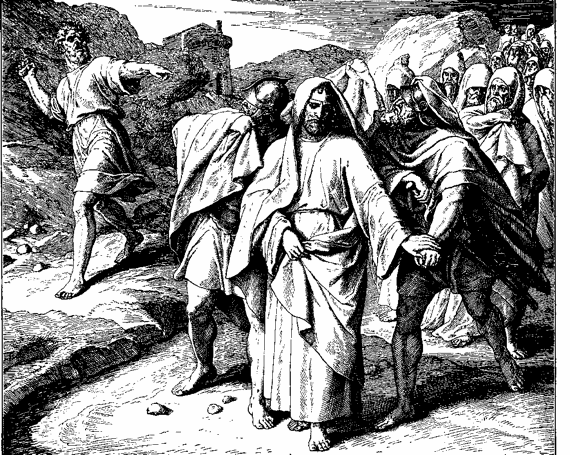Recently, I wrote about how leaders must learn to handle criticism and overlook offenses. I think this is the number one way that leaders can get derailed and rendered ineffective.
A few days ago, I ran into a story in reading the Desert Fathers, that illustrated the point beautifully:
A brother came to see Abba Macarius the Egyptian and said to him, “Abba, give me a word, that I may be saved.’ So the old man said, ‘Go to the cemetery and insult the dead.’ The brother went there, hurled insults and stones at them; then he returned and told the old man about it. The latter said to him, ‘Didn’t they say anything to you?’ He replied, ‘No.’
“The old man said, ‘Go back tomorrow and praise them.’ So the brother went away and praised them, calling them Apostles, saints and blessed people. He returned to the old man and said to him, ‘I have complimented them.’ And the old man said to him, ‘Did they not answer you?’ the brother said, ‘No.’
“The old man said to him, ‘You know how you insulted them and they did not reply, and how you praised them and they did not speak; so you, too, if you wish to be saved must do the same and become a dead man. Like the dead, take no account of either the scorn of others or their praises, and you can be saved.’”
Note: In the language of the fathers, the phrase “be saved” should be understood as “be sanctified.” They had a much more expansive view of salvation than we moderns. It included conversion, sanctification, and glorification.
So next time you are offended, take these four action steps:
- Acknowledge to yourself that you were offended. There's no sense pretending. It hurts to be offended. You can’t transcend what you don't acknowledge.
- Remind yourself that being offended is a choice. You don’t have to be offended. One of the things that makes you uniquely human is you have a choice how you can respond to what happens to you.
- Remember that you are dead to these things. If you are a Christian, St. Paul says, “you are dead and your life is hid with Christ in God” (see Colossians 3:3). You don't have to obsess about these things and let them consume your thinking.
- Forgive the other person and let it go. This is the literal meaning of the Greek word apoluo. It means: “to set free, to release, to pardon a prisoner or release a debtor.” As someone once said, “holding a grudge is like drinking poison and expecting the other person to die.”
Effective leaders have learned to overlook offenses. They are mindful of Solomon’s admonition: “The discretion of a man makes him slow to anger, and his glory is to overlook a transgression.” (Proverbs 19:11)
Disclosure of Material Connection: Some of the links in the post above are “affiliate links.” This means if you click on the link and purchase the item, we will receive an affiliate commission. Regardless, we only recommend products or services we use and believe will add value to our readers. We are disclosing this in accordance with the Federal Trade Commission’s 16 CFR, Part 255: “Guides Concerning the Use of Endorsements and Testimonials in Advertising.









